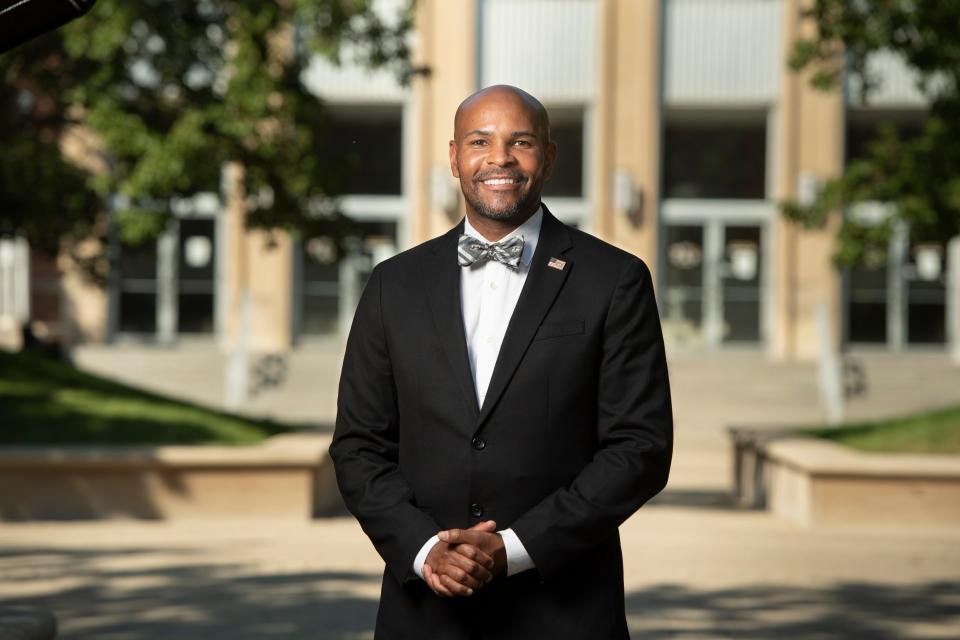It's almost time for back to school. It's time for you to talk about monkeypox.
Summer is winding down and, if your family is like mine, there’s an increasing focus on preparing to go back to school. Unfortunately, this year that also means preparing to deal with the looming threat of monkeypox. Public health emergencies for monkeypox have been declared globally, nationally and, in some states, outbreak numbers are doubling about every week.
As of right now, 95% of monkeypox cases reported have been in men who have sex with men. There is intense scientific speculation over how much of this is due to networks and behaviors vs. actual uniquely sexual transmission of the virus. However, monkeypox has spread mainly through close contact with both infected people and the materials (bedding, for example) they recently had skin-to-skin contact with.
What about back to school?
What does this mean for those returning to school? When it comes to any infectious disease – whether COVID-19, meningitis or monkeypox – I’ve always advised people to:

►Know their individual risk.
►Assess their environment.
►Take appropriate risk-adjusted measures to stay safe.
I advise parents to be on the lookout for symptoms so that treatment can be started promptly and to stay alert to any reported rise in community cases.
Parents also should ensure their children are up to date on all vaccines, though the monkeypox vaccine – which is in short supply – is not recommended for children.
Monkeypox: It's not a matter of whether it will spread widely. We need to focus on when.
There are many opportunities for close contact among children, including sports, parties, sleepovers and intercourse (yes, parents, some of your high schoolers are having sex).
Parents shouldn’t be overly fearful of monkeypox any more than they worry about measles or meningitis. Monkeypox cases will pop up, and the key is to quickly identify, isolate and appropriately treat cases when they do occur so individual cases don’t become outbreaks, which lead to larger epidemics.
Monkeypox at college? Are they ready?
College students should think about monkeypox similarly, with the added caveat that college is a time when young adults spend inordinate amounts of time lounging around in each other’s personal spaces and when they tend to be much more open to (and have more opportunities for) sexual exploration.
Therefore, a disease traditionally spread by skin-to-skin contact – and in this outbreak is being transmitted concordant with, if not directly via, sex – is going to be much more likely to spread in such an environment.
USA TODAY columnist: Are college campuses ready for a post-Roe world? Here’s what students need to know.
UN secretary-general: These five steps will help us kick our fossil fuel addiction and save the planet
Colleges need to prepare guidance posters alerting students to the symptoms of monkeypox, including the tell-tale rash and lesions.
Student health centers need to ensure staff are appropriately knowledgeable about how to evaluate suspected cases and have a well-thought-out plan to test, isolate and treat individuals, trace contacts, and appropriately clean contaminated areas such as dorm rooms and other co-living spaces. Questions such as where to house a student for isolation or quarantine and the plan for preexposure prophylaxis of contacts need to be answered now – not in the midst of dealing with a case.
Given the current case demographics, colleges should be coordinating with campus LGBTQ groups to help increase awareness of risk factors, advise appropriately – avoid or minimize risky sexual interactions, be on the lookout for symptoms and seek medical evaluation immediately – and to advocate for vaccines and access to treatment for high-risk students.
A disease every school year
It's not whether but when we will see monkeypox cases (and likely outbreaks) among returning students. But this happens every school year, with some disease or another.

We’ve had mumps and meningitis, and for the past two years COVID-19 outbreaks. The key is to plan vs. panic. By having a plan when cases inevitably arise, we’ll be able to best protect and support both the health of students and of the broader community.
Monkeypox is here, but it doesn’t have to ruin the excitement and promise of a new school year.
More from Dr. Jerome Adams
Presidents and COVID-19: Biden 'in a much better situation' than Trump was
Monkeypox now a global emergency: US government needs to step up
Dr. Jerome Adams, a former U.S. surgeon general, is a distinguished professor and executive director of health equity initiatives at Purdue University and a member of the USA TODAY Board of Contributors. Follow him on Twitter: @JeromeAdamsMD
You can read diverse opinions from our Board of Contributors and other writers on the Opinion front page, on Twitter @usatodayopinion and in our daily Opinion newsletter. To respond to a column, submit a comment to letters@usatoday.com.
This article originally appeared on USA TODAY: The monkeypox emergency is going to affect schools, colleges. Be ready

 Yahoo Movies
Yahoo Movies 
